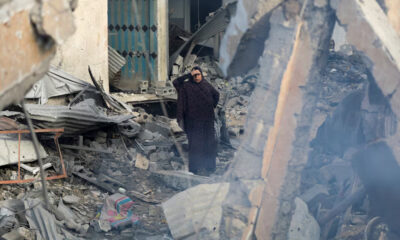Business
ADB Approves $100 Million Grant to Support Afghanistan’s COVID-19 Response

The Asian Development Bank (ADB) on Wednesday approved a $100 million grant to help the Government of Afghanistan respond to the coronavirus disease (COVID-19) pandemic, the statement said.
"ADB reaffirms its full commitment to supporting Afghanistan in its fight against COVID-19 and reducing the adverse impact of the pandemic on the lives of Afghans and the economy,” said ADB President Masatsugu Asakawa. “The assistance will help strengthen the health system, expand social protection for the poor and vulnerable population while ensuring gender mainstreaming, and support macroeconomic stabilization and job creation in Afghanistan.”
Afghanistan’s economic outlook has deteriorated during the COVID-19 pandemic because of business lockdowns, a sharp drop in household incomes, and a downturn in regional trade and remittances. ADB forecasts Afghanistan’s gross domestic product (GDP) to contract by 5.0% this year. Nearly 250,000 micro, small, and medium-sized enterprises (MSMEs), accounting for over 80% of nonagricultural employment, have been hit hard. The unemployment rate is projected to rise to 37.9% in 2020 from 23.9% in 2019. The budget deficit including grants has nearly tripled, reaching 3% of GDP in 2020, compared to 2019. Spikes in food prices due to disruptions in the food supply have increased the food insecurity risks.
According to the statement the national poverty rate is projected to reach up to 72% this year from 55% in 2017, with an additional 6 million people falling into poverty. A health emergency of such magnitude has aggravated the pressure on the country’s inadequate health care system, compounded by increasing transmission risks from internally displaced persons, returning migrants, and refugees.
To mitigate the adverse impacts of the pandemic, the government rolled out its comprehensive countercyclical pandemic response package of $633.9 million, comprising health, social protection, and macroeconomic stabilization measures. ADB’s COVID-19 Active Response and Expenditure Support (CARES) Program grant will support the delivery of the government’s response package, read the statement.
The program has several components. It will support the government in conducting a nationwide gender-sensitive public awareness campaign for COVID-19, scaling up the capacity of medical facilities, including gender-sensitive treatment facilities and the availability of medical supplies and equipment.
It will help the government extend its targeted social safety nets, including daily bread assistance to at least 310,000 poor households; water and electricity bill coverage for at least 350,000 households in Kabul, with priority given to women-headed households; coverage of over 130,000 old-age pensioners and their female heirs, including biometric registration; one-time cash transfers of 6,000 afghanis ($78) to at least 41,500 internally displaced persons and refugees; and remuneration packages for at least 32,570 disabled persons and the families of people killed in conflicts.
The program will also support the implementation of stabilization measures covering state-owned enterprises, job creation in the agriculture sector, and MSMEs. The MSME support will comprise tax exemptions, subsidized lending, vocational training, and market access.
The grant also features measures to promote good governance and anticorruption, including having a monitoring and evaluation specialist at the Ministry of Finance (MOF) to support program implementation and reporting, electronic tracking of fund flows at the MOF, and auditing of pandemic-related spending by the Supreme Audit Office, which are built into the assistance. ADB had earlier provided technical assistance to strengthen debt management and monitoring of fiscal risks, as well as project management capacity, procurement systems, and safeguards compliance.
The CARES Program is funded through the COVID-19 pandemic response option (CPRO) under ADB’s Countercyclical Support Facility. CPRO was established as part of ADB’s $20 billion expanded assistance for developing member countries’ COVID-19 response announced in April. Visit ADB’s website to learn more about its ongoing response.
This comes after in May, ADB approved a $40 million emergency assistance grant for Afghanistan. It supports the construction of 15 and rehabilitation of 5 hospitals and medical facilities, adding more than 1,100 new hospital beds; procurement of urgent medicines, medical supplies, and equipment; and training of at least 3,000 health workers, including 900 women, in COVID-19 surveillance, prevention, and treatment.
Business
China’s first railway consignment arrives in Afghanistan via Iran
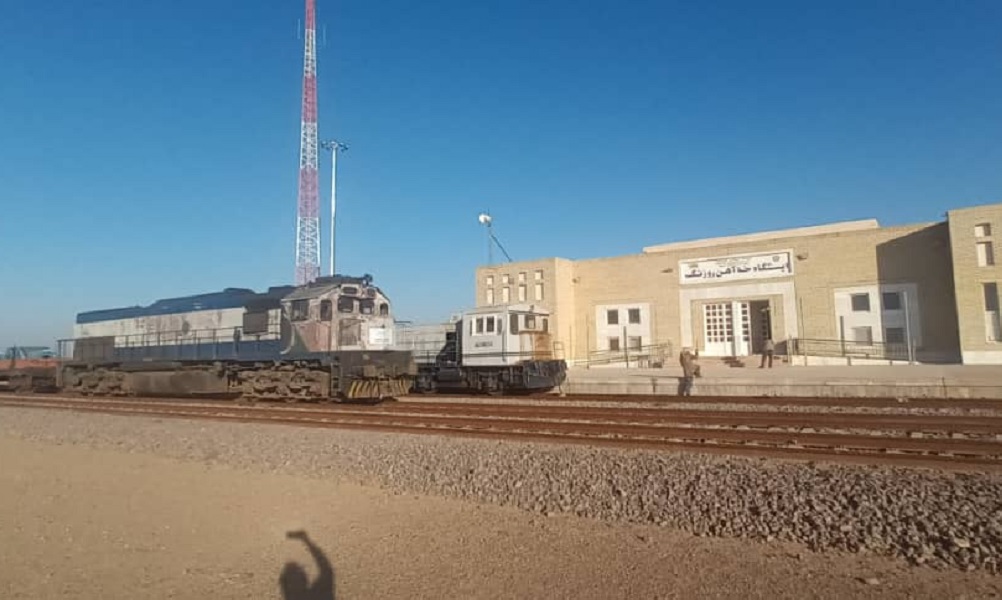
China's first railway transit consignment to Afghanistan via Iran, carrying 1,000 tons of iron coil, arrived at Roznak station in Herat province, the Ministry of Public Works said on Friday.
The consignment, which started its journey from China, arrived in Afghanistan via Iran's railway network, Public Works Ministry spokesman Mohammad Ashraf Haqshenas said in a statement.
"The transportation of cargo through this route is an important step in the development of Afghanistan's transit links and connection to open waters and represents progress in the field of regional transport and transit," he said.
Haqshenas added that the completion of the Khaf-Herat railway would offer new potentials for Afghanistan's economy and create a good platform for expanding trade and transit in the region.
Business
Russia is using bitcoin in foreign trade, finance minister says
This year, Russia permitted the use of cryptocurrencies in foreign trade and has taken steps to make it legal to mine cryptocurrencies, including bitcoin.

Russian companies have begun using bitcoin and other digital currencies in international payments following legislative changes that allowed such use in order to counter Western sanctions, Finance Minister Anton Siluanov said on Wednesday.
Sanctions have complicated Russia's trade with its major partners such as China or Turkey, as local banks are extremely cautious with Russia-related transactions to avoid scrutiny from Western regulators, Reuters reported.
This year, Russia permitted the use of cryptocurrencies in foreign trade and has taken steps to make it legal to mine cryptocurrencies, including bitcoin. Russia is one of the global leaders in bitcoin mining.
"As part of the experimental regime, it is possible to use bitcoins, which we had mined here in Russia (in foreign trade transactions)," Siluanov told Russia 24 television channel.
"Such transactions are already occurring. We believe they should be expanded and developed further. I am confident this will happen next year," he said, adding that international payments in digital currencies represent the future.
Earlier this month, President Vladimir Putin said that the current U.S. administration was undermining the role of the U.S dollar as the reserve currency by using it for political purposes, forcing many countries to turn to alternative assets, Reuters reported.
He singled out bitcoin as an example of such assets, saying that no-one in the world could regulate bitcoin. Putin's remarks indicated that the Russian leader backs the extensive use of cryptocurrencies.
Business
Shoemaking industry in Takhar province facing stagnation
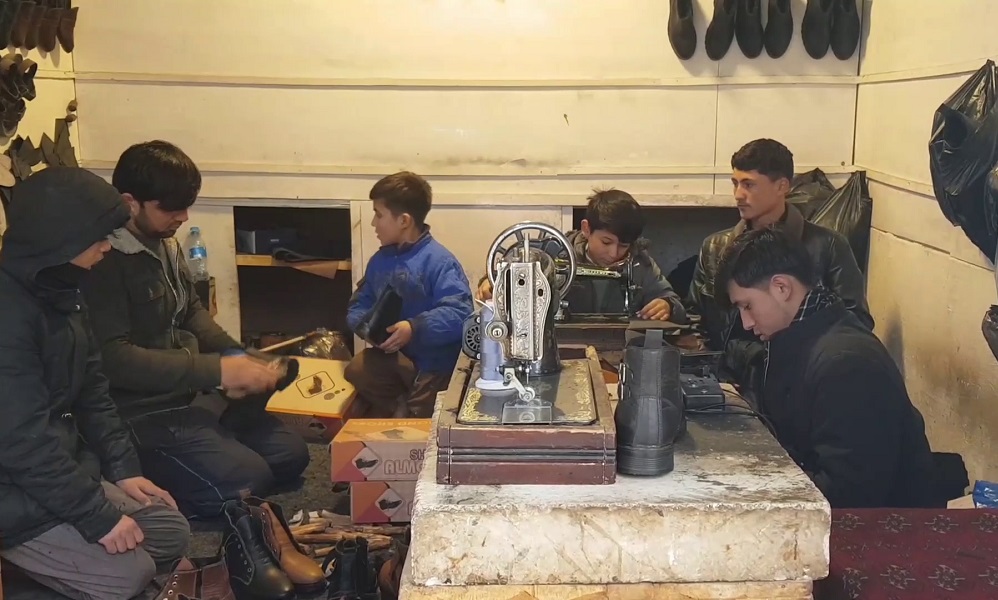
A number of shoemakers in northern Takhar province say that while their handmade shoes are of better quality than imported shoes, but still sales are down.
According to them, there were more than 20 shoe-making shops in the past, but now some have been closed due to the decline in sales.
The shoemakers make most of their shoes from leather. A number of industrialists say that this industry is now facing stagnation.
Abdul Raqib, a shoemaking factor owner, said: “The government should support us. Currently, we import soles. It can be made with good quality in Afghanistan, and we could even compete against Turkish shoes.”
Meraj, another shoemaking factory owner, said: “Shoe sales were higher in the republic era. There were military shoes. Sales have declined now, but we still thank Allah.”
Shoemakers make these shoes with basic tools and by hand, with 5 to 8 people working in each shop.
Javed, a shoemaker, said: “Our sales are not so good. We can make any type of shoe or slipper. We want the government to support us.”
A number of Takhar residents say that domestically produced shoes are of high quality and with lower price compared to imported shoes, so people prefer domestic products to foreign products.
Mir Ata, a resident of Takhar, said: “We are very happy about domestic shoes. People should buy it. They are of good quality.”
However, the officials of Takhar Industry and Commerce Department say that they are committed to support the industrialists.
Abdul Rahman Ghaznawi, provincial director of industry and commerce, said: “People prefer domestic shoes and slippers. Takhar’s products are sold in Kunduz, Baghlan and Badakhshan as well.”
Meanwhile, industrialists say that if the government supports them, they will be able to make the best products and can be more competitive.
-

 Latest News5 days ago
Latest News5 days agoSouth Korea pledges $5 million to support vulnerable families in Afghanistan
-
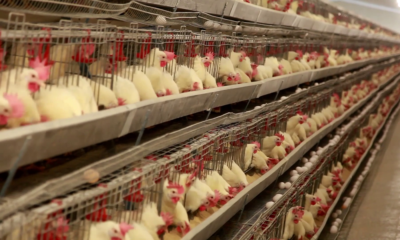
 Latest News3 days ago
Latest News3 days agoMinistry: $1 billion invested in Afghanistan’s poultry production sector
-
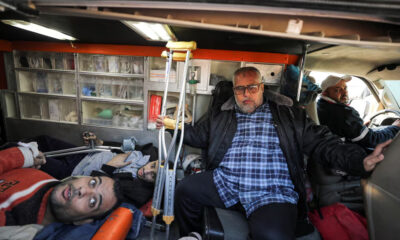
 Regional4 days ago
Regional4 days agoU.N. body accuses Israel of destroying Gaza healthcare
-

 Latest News5 days ago
Latest News5 days agoShah wa Arus dam inaugurated in Kabul
-
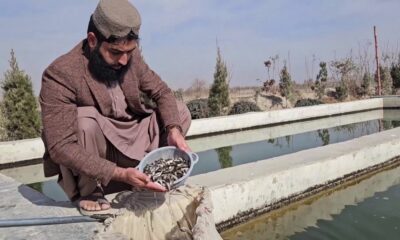
 Latest News3 days ago
Latest News3 days agoDeclining water levels affect 50 percent of fish farms in Kandahar
-
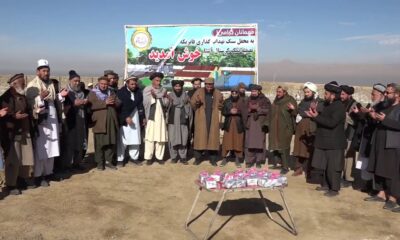
 Latest News3 days ago
Latest News3 days agoSalt refinery plant to be built in Takhar province
-
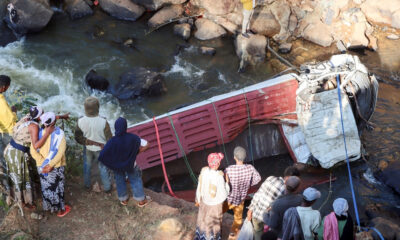
 Latest News4 days ago
Latest News4 days agoAt least 71 killed in Ethiopia road accident
-

 Sport3 days ago
Sport3 days agoAfghanistan set for second test against Zimbabwe in Bulawayo


